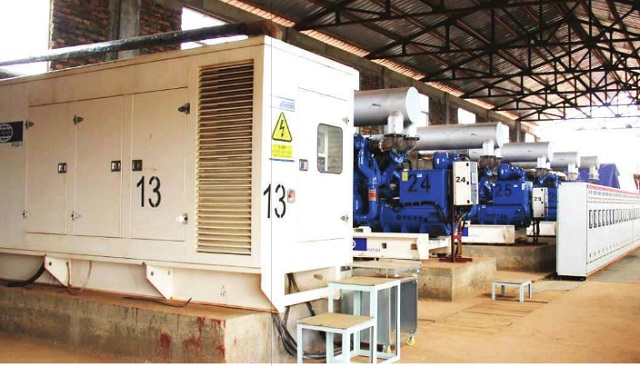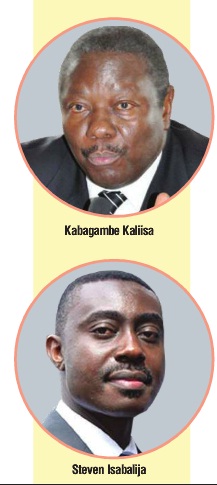
Kabagambe, Muloni outsmart Isabalija
Added to the issue of costs is the issue of project management turf wars. The Energy ministry officials are upset that UEGCL commissioned the audit that has exposed apparent rot in the Karuma and Isimba dam management. This has resulted in intensified animosity between officials at the Energy Ministry, Energy Infratech, and those at UEGCL.
As The Independent reported in the last issue, UEGCL, as the implementing agency, was supposed to be in charge of the supervision. But the officials at Energy locked it out at the time the contract with the contractor was being signed. Interestingly, the Energy Ministry entered a tripartite MoU between electricity transmitter, UETCL and UEGCL appointing the latter as the implementer of the two projects. UEGCL is also mandated to manage all dams in the country, but the Energy Ministry officials signed the contract for the dams and hired a supervisor, Energy Infratech, to oversee construction.
In several correspondences, UEGCL asked energy officials to pass on the powers to implement the contracts but officials at energy refused.
The push by UEGCL appears to have infuriated officials at Energy ministry; especially Mubiru, who in a letter told Mutikanga that he was not answerable to him and declined to make the interventions Mutikanga had suggested.

“As accounting officer I cannot withhold payment to the OE based on hearsay,” Mubiru wrote to Mutikanga in February this year, “Similarly, I decline the OE to provide to UEGCL the project organisation structure and the CVs of all the staff because it is not clear to me whether you are either usurping the powers of PPDA to conduct a procurement audit or you are usurping the powers of MEMD in administering contracts which this Ministry Executed with the Owner’s Engineer.”
According to Mutikanga, he was asking for the details as part of his mandate to supervise the dams. Plus, UEGCL’s audit had previously revealed that some employees of Energy Infratech were not suitable. It was important that those that replaced them were also verified, Mutikanga noted. But Mubiru had not budged.
The Independent has learnt that Ministry of Energy might, in fact be powerless to act against Energy Infratech, which allegedly has “powerful backers”. Apparently, the company was introduced to the country at the time Nimisha Madhvani was Uganda’s ambassador to India. With her help, Energy Infratech, found the blessings of powerful brokers in Uganda’s cabinet, who introduced it other powerful officials at the Energy Ministry. That is how Energy Infratech got itself a contract to supervise construction of Uganda’s biggest power dam and another small one concurrently.
The same applies to Synohydro. While Synohydro is an established power dam constructor, having constructed over 60% of the dams in Africa, it also has powerful brokers in Uganda. That is how it beat off the competition from all officials at the Energy Ministry who were vouching for another company, China International Water & Electric Corporation (CWE). But CWE got Isimba as a consolation.
While the fight during procurement was over who gets the fattest piece of commission, the fight over implementation is over who controls the billions of dollars being spent on construction.
And in this fight, UEGCL is up against all the brokers of Energy Infratech, Synohydro and the Energy Ministry all on one side.
Indeed, when UEGCL asked Museveni to intervene, he suspended Mubiru and his two other colleagues. He also asked that the dam construction works are halted until any mess is sorted. The officials were suspended and works halted, however, the officials at the Energy Ministry have declined to address Museveni’s main directive, which is handing over the powers to UEGCL.
On April 21, nineteen days after Museveni’s directive, the UEGCL board chairman, Steven Isabalija, wrote to Minister Irene Muloni, asking why she had not addressed the president’s directive.
In the letter, Isabalija copied in, the Vice President, Prime Minister, the Inspector General of Police, the Permanent Secretary Minister of Finance and the Attorney General.
Isabalijja’s letter was responding to another by Energy Minister Irene Muloni. On April 15, Muloni wrote to UEGCL in a policy directive noting that the contracts were signed by the Energy Ministry on behalf of government and that UEGCL and the transmission arm—UETCL—were only witnesses to the contract.
In effect, Muloni informed UEGCL that the Energy Ministry would remain the overall implementer of the power dam contracts with UEGCL playing a somewhat peripheral role here and there.
The Independent has since learnt that following the President’s directive, lobbying and a marathon of meetings took place at Amber House. Muloni travelled to the site with experts. Afterwards, Muloni is said to have met President Museveni and cleared the air. According to informed sources, Muloni told Museveni that while there were concerns, they were not out of hand as officials at UEGCL were implying.
The Chinese companies—Synohydro and CWE—lobbied the Chinese Ambassador, Zhao Yali, who reportedly met with President Museveni and protested the way the Chinese companies were being targeted and “soiled”. He assured Museveni that the dams would be completed without mishaps. Energy Infratech also lobbied a lead Indian diplomat to lobby on their behalf.
That is why Muloni felt protected enough to write the harsh rebuke to Isabalija. For good measure, in the last of her eight-point letter, Muloni ordered Isabalija to disband the Panel of Experts that UEGCL had hired and hire new ones in “in dose consultation with the MEMD’.
“UEGCL should therefore review the contracts between the company and its Strategic Technical Project Managers/Consultants to remove any element of conflict of interest,” Muloni wrote, “By copy of this policy direction the Owner’s Engineer and the EPC contractors, should take note of this policy direction and comply accordingly.” The Energy ministry officials at Amber House appear to have beaten back the Karuma, Isimba dam tide that threatened to sweep them. Hopefully, the can now work on the quality of construction works and control the cost.
 The Independent Uganda: You get the Truth we Pay the Price
The Independent Uganda: You get the Truth we Pay the Price





